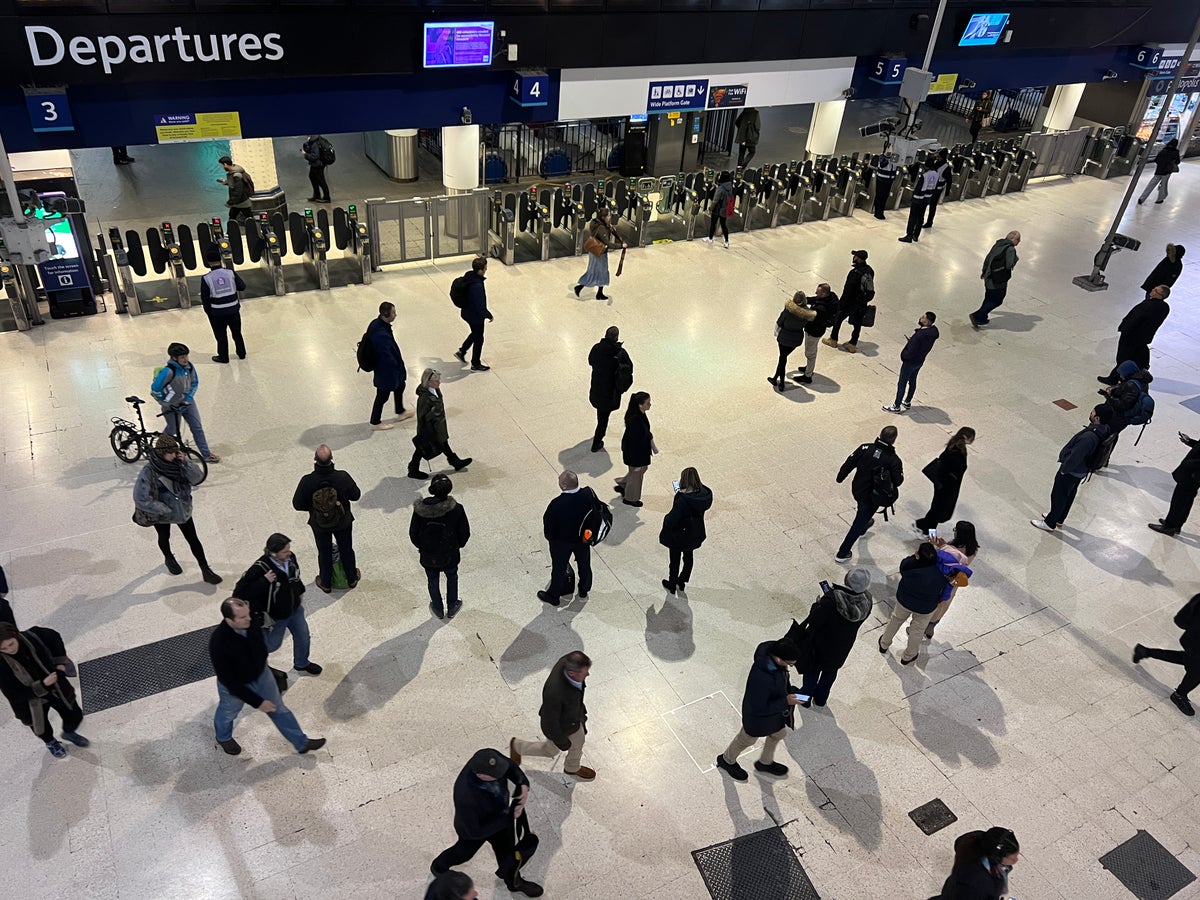
Nationwide rail strikes have entered their third year, with a series of “rolling” walk-outs planned to disrupt the journeys of millions of passengers across England in late January and early February.
Train drivers belonging to Aslef will stop work region-by-region over the course of a week between Tuesday 30 January and Monday 5 February. Thousands of trains are likely to be cancelled on each day.
The effect will be exacerbated by a nine-day ban on overtime running from 29 January to 6 February.
The strikes are designed to cause maximum disruption over an extended spell, but with train drivers each losing only one day’s pay. It mirrors the rolling industrial action at the start of December 2023. The schedule is:
- Monday 29 January: overtime ban begins.
- Tuesday 30 January: strikes on South Western Railway, Southeastern, Southern, Gatwick Express, Great Northern and Thameslink.
- Wednesday 31 January: strikes on Northern and TransPennine Express.
- Thursday 1 February: no strike but overtime ban continues.
- Friday 2 February: strikes on Greater Anglia, C2C and LNER.
- Saturday 3 February: strikes on West Midlands Trains, Avanti West Coast and East Midlands Railway.
- Sunday 4 February: no strike but overtime ban continues.
- Monday 5 February: strikes on Great Western, CrossCountry and Chiltern.
- Tuesday 6 February: no strike but overtime ban continues for a final day.
In terms of sheer number of passengers hit, Monday 29 January will be the most disruptive. It is aimed at commuters in southeast England, the majority of whom use the affected train operators.
Intercity travellers will be worst affected on Friday 2 and Saturday 3 February, when the main operators on the East Coast and West Coast main lines, as well as the Midland mainline, will be hit.
Sunday 4 February is also likely to be severely disrupted because of the ban on rest-day working.
Aslef says no train operator “employs enough drivers to provide the service they promise passengers and businesses they will deliver without asking drivers to work their days off”.
ScotRail, Transport for Wales, Transport for London (including the Elizabeth Line), Merseyrail and “open-access” operators such as Grand Central, Hull Trains and Lumo are not involved.
The effects may be reduced if the transport secretary, Mark Harper, uses new legislation to impose “minimum service levels” (MSLs).
The Department for Transport (DfT) says: “The minimum service level is to provide the train operation services necessary to operate the equivalent of 40 per cent of the timetabled services during the strike period.”
But the Transport Select Committee has warned of possible risks.
The Conservative chair of the committee, Iain Stewart, said last month: “The government has signalled its intention to implement MSLs as soon as possible.
“There is a risk of MSLs worsening worker-employer relations and that, as a result, MSLs could end up making services less reliable.”
The train drivers’ union has been in dispute with 14 train operators, including all the leading commuter and intercity companies, since the summer of 2022.
Aslef is demanding a no-strings pay increase followed by negotiations at a local level to modernise working practices – which will come at an additional price to the employers.
The train operators, who are represented by the Rail Delivery Group (RDG), say even a modest pay increase is contingent on far-reaching reforms.
Any deal will be signed off by the DfT. Taxpayers will foot the bill. Ticket revenue is about one-fifth down on pre-Covid levels. The public subsidy to keep the railway running is currently £16,300 per minute – £4,000 more than before the pandemic.
The union says it has had no talks with Mark Harper, the transport secretary, since 2022; with Huw Merriman, the rail minister, since January 2023; and with the employers since April 2023.
Aslef’s general secretary, Mick Whelan, said: “We have given the government every opportunity to come to the table but it has now been a year since we had any contact from the Department for Transport. It’s clear they do not want to resolve this dispute.
“Many of our members have now not had a single penny increase to their pay in half a decade, during which inflation soared and with it the cost of living.
“Train drivers didn’t even ask for an increase during the Covid-19 pandemic when they worked throughout as key workers, risking their lives to allow NHS and other workers to travel.
“The government has now tried their old trick of changing the rules when they can’t win and brought in minimum service levels legislation. But this new law, as we told officials during the consultation period, won’t ease industrial strife. It will likely just make it worse.
“There’s no excuse. The government and train operating companies must come to the table with a realistic offer so we can end this dispute and work together to ensure the future of our railways.”
The Independent has asked the RDG and the DfT for responses. After the latest emphatic votes by Aslef members for further industrial action, a spokesperson for the Rail Delivery Group said: “Strikes called by the Aslef leadership continue to result in huge disruption for our customers, staff and the hospitality industry.
“Our priority is finding a fair and affordable way through this dispute, so we can end the disruption to our passengers, give our people a pay rise and return the industry to a sustainable footing at a time when taxpayers are contributing an extra £54m a week to keep services running post-Covid.
“We have always been clear that we remain open to constructive dialogue with Aslef to find a resolution, and that is still the case.”







